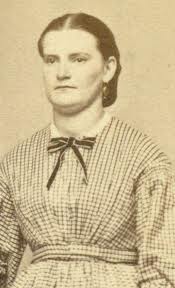 Lincoln was known for his, magnanimous Presidential Pardons, but one particular Immigrant’s Plaintive Plea, for the life of her brother, struck the heart chords of Lincoln’s better nature. A.K. McClure, a Lincoln confidant, relates the following story,
Lincoln was known for his, magnanimous Presidential Pardons, but one particular Immigrant’s Plaintive Plea, for the life of her brother, struck the heart chords of Lincoln’s better nature. A.K. McClure, a Lincoln confidant, relates the following story,
An Ohio Senator had an appointment with President Lincoln at six o’clock, and as he entered the vestibule of the White House his attention was attracted toward a poorly clad young woman, who was violently sobbing. He asked her the cause of her distress. She said she had been ordered away by the servants, after vainly waiting many hours to see the President about her only brother, who had been condemned to death. Her story was this:
She and her brother were foreigners, and orphans. They had been in this country several years. Her brother enlisted in the army, but, through bad influences, was induced to desert. He was captured, tried and sentenced to be shot—the old story.
The poor girl had obtained the signatures of some persons who had formerly known him, to a petition for a pardon, and alone had come to Washington to lay the case before President Lincoln. Thronged as the waiting-rooms always were, she had passed the long hours of two days trying in vain to get an audience, and had at length been ordered away.
The gentleman’s feelings were touched. He said to her that he had come to see Lincoln, but did not know as he should succeed. He told her, however, to follow him upstairs, and he would see what could be done for her.
Just before reaching the door, Mr. Lincoln came out, and, meeting his friend, said good-humoredly, “Are you not ahead of time?” The gentleman showed him his watch, with the hand upon the hour of six.
“Well,” returned Mr. Lincoln, “I have been so busy to-day that I have not had time to get a lunch. Go in and sit down; I will be back directly.”
 The gentleman made the young woman accompany him into the office, and when they were seated, said to her: “Now, my good girl, I want you to muster all the courage you have in the world. When the President comes back, he will sit down in that armchair. I shall get up to speak to him, and as I do so you must force yourself between us, and insist upon his examination of your papers, telling him it is a case of life and death, and admits of no delay.” These instructions were carried out to the letter. Mr. Lincoln was at first somewhat surprised at the apparent forwardness of the young woman, but observing her distressed appearance, he ceased conversation with his friend, and commenced an examination of the document she had placed in his hands.
The gentleman made the young woman accompany him into the office, and when they were seated, said to her: “Now, my good girl, I want you to muster all the courage you have in the world. When the President comes back, he will sit down in that armchair. I shall get up to speak to him, and as I do so you must force yourself between us, and insist upon his examination of your papers, telling him it is a case of life and death, and admits of no delay.” These instructions were carried out to the letter. Mr. Lincoln was at first somewhat surprised at the apparent forwardness of the young woman, but observing her distressed appearance, he ceased conversation with his friend, and commenced an examination of the document she had placed in his hands.
Glancing from it to the face of the petitioner, whose tears had broken forth afresh, he studied its expression for a moment, and then his eye fell upon her scanty but neat dress. Instantly his face lighted up.
“My poor girl,” said he, “you have come here with no Governor, or Senator, or member of Congress to plead your cause. You seem honest and truthful; and you don’t wear hoopskirts—and I will be whipped but I will pardon your brother.” And he did.
Bummer

